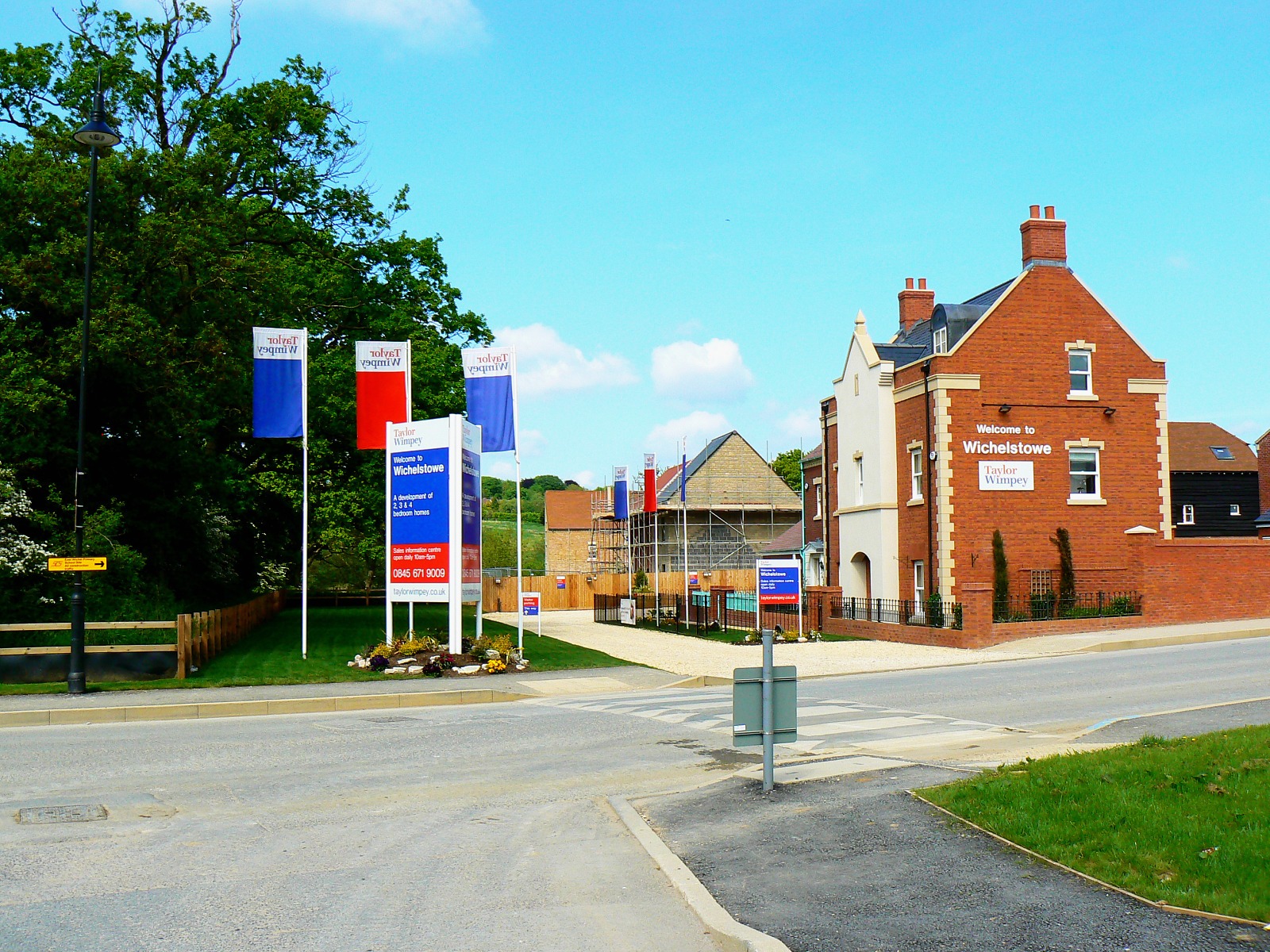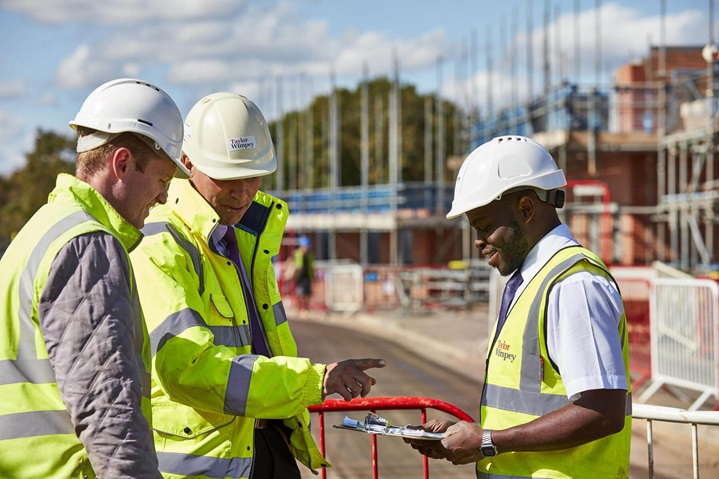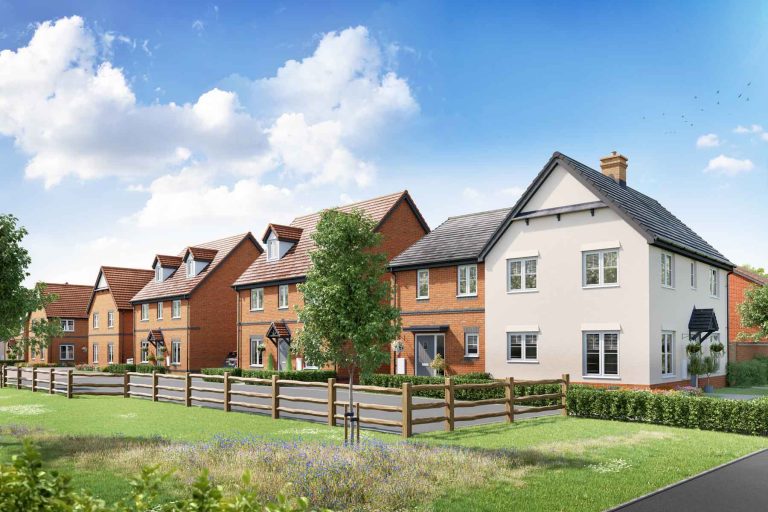Taylor Wimpey plc (LON:TW) has today announced its full year results for the year ended 31 December 2019.
Pete Redfern, Chief Executive, commented:
“The Group delivered a good performance in 2019, with a record sales rate and home completions increasing by 5%. During the year, we continued to strengthen our business and build a sustainable advantage, improving our core customer proposition and business flexibility through investments in customer service, quality, build capacity and direct labour. These investments will strengthen the business for the long term.
In 2020, we will focus on further embedding and leveraging these improvements across the business while increasing our focus on cost discipline and process simplification.
The new year has started well, with a good level of customer demand and a clearer political outlook.”
Group financial highlights:
· 2019 results in line with expectations with clear progress against strategic priorities
· 5% increase in Group completions to 16,042 (2018: 15,275) including joint ventures
· Revenue increased by 6.4% to £4,341.3 million (2018: £4,082.0 million)
· Operating profit* of £850.5 million (2018: £880.2 million), reflecting strong volume growth offset by rising build costs and flat house prices, delivering an operating profit margin of 19.6% (2018: 21.6%)
· Profit before tax and exceptional items of £821.6 million (2018: £856.8 million)
· Profit for the year of £673.9 million (2018: £656.6 million)
· Basic earnings per share of 20.6 pence (2018: 20.1 pence)
· Net cash‡ of £545.7 million (2018: £644.1 million)
· £599.7 million paid in total dividends in 2019 (2018: £499.5 million)
· c.£610 million in total dividends proposed for 2020, subject to shareholder approval, as previously announced
Operational highlights:
· Strong UK forward order book of 9,725 units as at 31 December 2019 (31 December 2018: 8,304), valued at £2,176 million (31 December 2018: £1,782 million)
· Industry leading sales rate of 0.96 (2018: 0.80), representing a record, and an increase of 20%
· Further progress improving build quality and investing to strengthen our customer offering and future production capacity
- Leading the volume housebuilders with National House-Building Council (NHBC) Construction Quality Review score of 4.13 (2018: 3.93)
- Key trade apprentices increased to 634 (2018: 318)
· Named in the Glassdoor top 50 places to work in the UK for 2020, as voted for by employees, for the third consecutive year
| 2019 | 2018 | Change | |
| Revenue £m | 4,341.3 | 4,082.0 | 6.4% |
| Operating profit £m | 850.5 | 880.2 | (3.4%) |
| Operating profit margin % | 19.6% | 21.6% | (2.0ppt) |
| Profit before tax and exceptional items £m | 821.6 | 856.8 | (4.1%) |
| Profit before tax £m | 835.9 | 810.7 | 3.1% |
| Profit for the year £m | 673.9 | 656.6 | 2.6% |
| Adjusted basic earnings per share pence†† | 20.3 | 21.3 | (4.7%) |
| Basic earnings per share pence | 20.6 | 20.1 | 2.5% |
| Tangible net asset value per share pence† | 100.5 | 98.3 | 2.2% |
| Net cash £m | 545.7 | 644.1 | (15.3%) |
Summary
In 2019, we made good progress on our strategic priorities to drive the long term sustainability of our business and delivered record completions, growing Group volumes by 5% to 16,042 (2018: 15,275) including joint ventures. However, in an environment where the political and economic outlook has been uncertain, average sales prices remained flat, while build cost inflation increased. During this time, we also continued to invest in the business for the long term, improving our quality and customer offering, developing additional production capacity, flexibility, efficiency and sustainability. Together, these factors had an impact on margins.
Operating profit in 2019 was £850.5 million (2018: £880.2) million, with an operating profit margin of 19.6% (2018: 21.6%).
Profit for the year at £673.9 million (2018: £656.6 million) up 2.6% on 2018 aided by a positive post-tax exceptional contribution of £11.6 million (2018: post-tax exceptional expense of £37.9 million). We returned £599.7 million in the year to shareholders via an ordinary and special dividend (2018: £499.5 million) and outlined plans to return c.£610 million in 2020, subject to shareholder approval.
UK current trading and outlook
We have made a positive start to 2020 coming into the spring selling season and, with a clearer political outlook, customer confidence has improved. The net private sales rate for the year to date (w/e 23 February 2020) was 0.97 (2019: 0.99). The underlying net private sales rate for the year to date, and the equivalent period, excluding bulk deals, was 0.92 (2019: 0.90). To date we have achieved selling price growth of c.1.5% against budget.
As at 23 February 2020, we were c.49% forward sold for private completions for 2020 (2019: 47%), with a total order book value of £2,606 million (2019: £2,170 million), excluding joint ventures. This order book represents 10,901 homes (2019: 9,622). In Central London c.84% of private completions for 2020 are forward sold, as at 23 February 2020 (2019: c.50%).
The easing in build cost pressures seen in late 2019 has been maintained, and we expect build cost inflation in 2020 to be around 3%. We are focused on reducing underlying costs to mitigate future build cost inflation. This very clear focus on cost, simplification and value has been well received by the business, with employees engaged at every level. Volumes for 2020 are expected to be slightly lower and we will be targeting a slighter lower sales rate as we focus on capturing value. We aim to maintain 2020 operating profit margin broadly in line with 2019. Operating profit margin in the first half of the year will show pressure from 2019 build cost inflation and selling prices and long term investment in quality and business improvement, with margin improvement expected in the second half as cost initiatives improve performance. Margin remains a key priority for the Group and we are today reconfirming our medium term target to deliver operating profit margins of c.21-22%, assuming market conditions remain stable.
During a period of wider macro-economic uncertainty, the new build market has proved to be resilient and house prices have remained stable. As we look ahead, we see the removal of Help to Buy as a continued risk, but having had visibility of, and time to plan for, the changes, we consider it as one that can be managed. We remain supportive of Government plans to introduce an independent ombudsman service to the new build sector to provide impartial rulings on unresolved customer issues and to help raise standards in the wider industry.
Whilst we recognise that the ongoing trade discussions with the European Union may create some volatility in sentiment in the housing market in the near term, we see the clearer political outlook as providing a longer period of stability for our customers. We are mindful of the changing regulatory environment for the sector in the short to medium term and will continue to monitor this closely to ensure we are able to respond.
In line with our strategy, as we continue to build a sustainable advantage, we remain committed to investment in areas that will drive long term benefits and future value for customers and investors, such as our investment in apprentices, our direct labour recruitment and our strategy for large sites. We are also committed to further strengthening our environmental, social and governance (ESG) strategy and will set out further ambitious targets in key areas such as biodiversity and continuing to reduce our carbon footprint, including developing a science-based carbon reduction target by the end of 2020.
We will continue our focus on cash generation, cost discipline and the financial returns of our business. We returned a record £599.7 million in cash to shareholders in 2019 and have previously announced our intention to return a further c.£610 million this year, subject to shareholder approval.
* Operating profit is defined as profit on ordinary activities before net finance costs, exceptional items and tax, after share of results of joint ventures.
** Return on net operating assets (RONOA) is defined as rolling 12-month operating profit divided by the average of the opening and closing net operating assets, which is defined as net assets less net cash, excluding net taxation balances and accrued dividends.
*** Operating cash flow is defined as cash generated by operations (which is before taxes paid, interest paid and payments related to exceptional charges).
† Tangible net assets per share is defined as net assets before any accrued dividends excluding goodwill and intangible assets divided by the number of ordinary shares in issue at the end of the period.
†† Adjusted basic earnings per share represents earnings attributed to the shareholders of the parent, excluding exceptional items and tax on exceptional items, divided by the weighted average number of shares in issue during the period.
†* Net operating asset turn is defined as 12-month rolling total revenue divided by the average of opening and closing net operating assets.
†** WIP turn is defined as total revenue divided by the average of opening and closing work in progress.
‡ Net cash / (debt) is defined as total cash less total financing.
‡‡ Cash conversion is defined as operating cash flow divided by operating profit on a rolling 12-month basis.
‡‡‡‡ Adjusted gearing is defined as adjusted net debt divided by net assets. Adjusted net debt is defined as net cash less land creditors.
The Group uses Alternative Performance Measures (APMs) as key financial performance indicators to assess underlying performance of the Group. The APMs used are widely used industry measures and form the measurement basis of the key strategic KPIs (return on net operating assets, operating profit margin and cash conversion). A portion of executive remuneration is also directly linked to some of the APMs. Definitions and reconciliations to the equivalent statutory measures are included in note 12 of the financial statements.
A presentation to analysts will be hosted by Taylor Wimpey Chief Executive Pete Redfern, Group Finance Director Chris Carney and Group Operations Director Jennie Daly, at 9am on Wednesday 26 February 2020. This presentation will be webcast live on our website: www.taylorwimpey.co.uk/corporate
An archived version of the webcast will be available on our website in the afternoon of 26 February 2020.







































